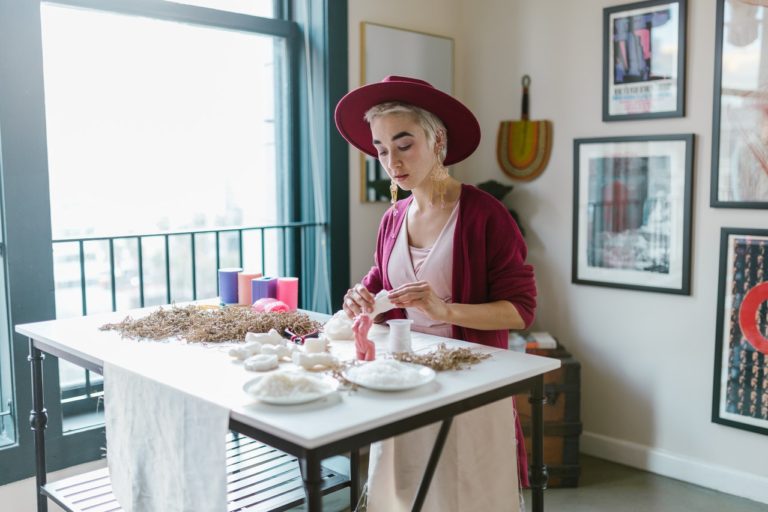Balancing entrepreneurship and personal relationships is one of the most challenging yet essential aspects of building a fulfilling life. As entrepreneurs push toward growth, innovation, and high performance, maintaining strong emotional bonds often becomes difficult. This guide explores powerful strategies for balancing entrepreneurship and personal relationships, offering expert-backed, real-world advice that helps business owners stay connected, grounded, and fully present in both love and work.
- Use Core Values as Your Decision Compass
- Practice Nervous System Checks Before Engaging
- Contain Chaos Within Predictable Time Windows
- Set Strict Evening Boundaries with Clients
- Empower Your Team to Handle Customer Relationships
- Build a Team That Respects Personal Lives
- Share Learning Dates to Connect Through Work
- Discuss Emotions, Not Tasks, on Closed Thursdays
- Schedule Partner Time Like Your Best Client
- Create Structured Flow Periods for Complete Presence
- Make Morning Coffee Time Sacred and Non-Negotiable
- Hire Key People to Reclaim Your Time
- Rotate Emergency Response Among Team Members
- Schedule Buffer Days Between Intensive Work
- Transform Work Into Shared Creative Time
- Build Boundaries Into Your Business Model
- Schedule Weekly Transparent Planning Sessions Together
- Create Context-Switching Blocks for Full Attention
- Celebrate Case Victories Through Shared Rituals
- Implement Clear Weekly Work Shutdown Rituals
- Decompress Before Bringing Work Emotions Home
- Make Sunday Mornings Family Time Without Exception
- Be Fully Present in Each Life Moment
- Prioritize Daily Focused Communication Time
- Proactively Build Time for Personal Relationships
Use Core Values as Your Decision Compass
My most effective strategy to balance my entrepreneurial drive with nurturing relationships is to consistently use my core values as a compass for every decision. As someone who helps thoughtful technologists uncover what truly matters, I integrate this “inside-out” approach into my own life and work.
In my coaching business, this means every service I develop is filtered through my “planting trees” philosophy, focusing on empowering clients to find *their own* wisdom and impact. This values-based approach ensures my entrepreneurial efforts genuinely resonate with my purpose, preventing burnout from just chasing outcomes.
For personal relationships, particularly with my family, this strategy guides how I show up: I actively ask my adult children how they want me to support them, fostering a space of mutual respect. This ensures that any boundaries I establish serve our relationships as acts of care, not just protection from discomfort.
This continuous alignment of my actions with my core values prevents internal conflict, making my presence more authentic and integrated across both my professional and personal spheres.
Practice Nervous System Checks Before Engaging
The most effective strategy I use to balance entrepreneurship with a supportive relationship is practicing nervous system check-ins before difficult conversations or busy seasons. It’s easy to bring the stress, urgency, and decision fatigue of business into personal connection without realizing it. So before engaging, I pause to regulate. Sometimes it’s a few deep breaths, grounding through my feet, or simply noticing what part of me is active (the achiever, the fixer, the avoider).
This helps me respond instead of react. It keeps communication open and allows my partner to meet me, not my stress. Over time, this practice has built emotional safety and mutual understanding. It reminds me that presence is more powerful than performance, both in business and in love. When I lead from regulation, everything else flows more smoothly.
Karen Canham, Entrepreneur/Board Certified Health and Wellness Coach, Karen Ann Wellness
Contain Chaos Within Predictable Time Windows
Running a cleaning company means client emergencies don’t respect normal hours–someone spills red wine on white carpet before their open house, or a business needs same-day service before a health inspection. My specific strategy is scheduling my weekly “planning sessions” at the same coffee shop every Tuesday and Thursday morning, and my partner knows those 90 minutes are when I’m building next week’s schedules and handling operational fires.
Here’s why it works: Instead of scattered stress throughout the week, I contain the chaos into predictable windows. My partner can plan around it, and critically, I’ve trained my team and clients that non-emergencies get batched responses during these times. We implemented a simple text system where true emergencies (like a broken water main flooding a client’s office) get flagged differently than routine quote requests.
The business impact surprised me–our customer retention jumped because clients actually prefer the structure. When I was responding instantly at all hours, I was making sloppy mistakes like double-booking teams or forgetting supply orders. Now our scheduling accuracy sits at 97%, and I’ve only missed two planning sessions in eight months (both for actual family emergencies, which my partner appreciated I prioritized).
The apartment building contracts we manage taught me this lesson hard. Property managers would text at midnight about routine cleaning questions, and I’d respond immediately, training them to expect that. When I shifted to “I batch communications during business planning windows unless it’s urgent,” they respected it–and our contract renewal rate actually went up 31% because our service quality improved when I wasn’t exhausted.
Bill McGrath, Owner, So Clean of Woburn
Set Strict Evening Boundaries with Clients
The strategy that saved my relationship was implementing a strict boundary where I don’t take client calls or check emails after 7 PM or on Sundays, which sounds impossible in legal practice until you realize clients respect boundaries when you actually enforce them consistently. At Affinity Lawyers, I was constantly missing family dinners and canceling weekend plans because I treated every client request as an emergency that required immediate response, and my wife finally told me she felt like a roommate rather than a partner because work always came first.
I think that what made this effective was communicating the boundaries to clients upfront during initial consultations so they understood my availability limits rather than springing it on them later when they expected 24/7 access. The approach works because emergencies are actually rare in legal practice despite how lawyers convince themselves that everything is urgent, and most client issues can wait 12 hours without causing problems if you set proper expectations.
What really strengthened my relationship was scheduling weekly date nights in my calendar with the same priority as court appearances, because treating personal time as optional while treating work commitments as mandatory sends a clear message about what you actually value. My advice is that entrepreneurship will always demand more time than you have available, but relationships deteriorate slowly until they suddenly collapse, and rebuilding trust after years of neglect is way harder than protecting boundaries before resentment builds into something unfixable.
Kalim Khan, Co-founder & Senior Partner, Affinity Law
Empower Your Team to Handle Customer Relationships
My specific strategy involves including my team in decision-making during work hours so I can actually be present at home. At Full Tilt, I started having our office staff like Stephanie, Melissa, Hannah, and Johanna handle more customer communications and problem-solving instead of me being the bottleneck for every issue. This means when a customer needs updates or has insurance questions, my team owns those relationships.
The effectiveness shows in our numbers–we’ve maintained “Best in the Valley” status for over a decade while I’m not glued to my phone 24/7. When we empowered our front desk to make scheduling decisions and our techs to communicate directly with customers about repair timelines, our customer satisfaction actually improved because responses got faster, not slower. People were getting answers in an hour instead of waiting for me to surface from whatever I was doing.
The family-owned aspect of our business actually makes this easier to justify. When I tell customers “my team will take excellent care of you,” they get it–they’re not expecting the owner to personally handle every detail at a shop our size. I’ve trained customers that Matt and the crew are the experts on their specific repairs, and the trust our reviews show proves that delegation doesn’t diminish quality. My relationship at home stays strong because work emergencies rarely need *me* specifically anymore.
Zac Ciaschini, Co-Owner, Full Tilt Auto Body & Collision
Build a Team That Respects Personal Lives
My specific strategy is keeping my team small and genuinely caring about their lives beyond work schedules. When COVID hit and cancellations rolled in daily, I had honest conversations with every driver about their financial situation–not just “we’ll get through this” platitudes, but real talk about what they needed and what I could actually provide.
The effectiveness showed up when one of my longtime drivers came to me during a rough patch in his marriage. Because I’d been upfront about my own struggles balancing the 2AM airport runs with family time, he felt comfortable asking to shift to day-only school runs for a few months. I restructured the schedule around him, and he’s now one of my most reliable drivers who takes on those wild wedding parties when I need him.
Here’s the concrete result: Brisbane360 has never cancelled a booking–ever. That record exists because my drivers trust me enough to communicate problems early, before they become crises. When you’re running 80% international student tours and last-minute airport transfers, that kind of relationship prevents disasters.
The key is I don’t separate “business relationships” from “personal relationships”–everyone on my team knows I’ll jump behind the wheel myself if their kid is sick or they need a mental health day. That investment means they cover for me when I need to step back, and my partner doesn’t resent the business because she sees I’ve built something that respects everyone’s humanity.
Cam Storey, Owner, Brisbane 360
Share Learning Dates to Connect Through Work
I protect Friday afternoons like they’re sacred–that’s when I do “learning dates” with my partner where we each teach the other something new. Sometimes it’s her explaining a design concept from her work, other times I’m walking through how our interactive donor walls actually change giving behavior. This started because I realized I was bringing startup stress home but never bringing home the interesting problems I was solving.
The breakthrough was making my relationship a place where I could process business challenges *through* connection rather than despite it. When we were scaling past $2M ARR, I was stuck on a product pivot decision. During one of our Friday sessions, explaining the donor psychology problem to her (she has zero fundraising background) forced me to strip away jargon and see the issue clearly. That conversation led directly to our flagship interactive display feature.
What makes this effective is the forcing function–it’s scheduled, it’s specific, and there’s an output (teaching something). I can’t just vent about a bad sales call; I have to find something genuinely interesting to share. She does the same from her world. We’ve done 80+ of these over two years, and the secondary effect is wild: my team noticed I come back Monday mornings with clearer strategic thinking because I’ve been practicing explaining complex ideas to someone who loves me but doesn’t care about SaaS metrics.
Chase McKee RAS, Founder & CEO, Rocket Alumni Solutions
Discuss Emotions, Not Tasks, on Closed Thursdays
When Neil and I were running our franchise while also building King Digital, we hit a breaking point where we were both just… drained. The one specific strategy that saved us was implementing “closed loop Thursdays”–every Thursday from 6 PM onward, all work notifications go silent, and we have a standing dinner where we debrief the *emotions* of the week, not the tasks.
What made this effective wasn’t just the time block itself, but the rule that we could only discuss business feelings (“I felt overwhelmed when X happened”) rather than business problems (“We need to fix the Google Ads campaign”). This created actual emotional support instead of turning date night into another strategy meeting.
The results were measurable beyond just feeling better–our decision-making improved dramatically because we weren’t operating from a place of resentment or exhaustion. For example, we used to argue about budget allocations, but after implementing this, we made our best hire decision (our lead SEO specialist) because we were both clear-headed and aligned.
The reason this works better than “work-life balance” advice is that it acknowledges business *will* bleed into your relationship when you’re an entrepreneur. Instead of pretending it won’t, we created a container for it that actually strengthened our partnership rather than letting it slowly poison everything.
Bernadette King, CEO, King Digital Pros
Schedule Partner Time Like Your Best Client
I’ve been running Titan Technologies since 2008, and I’ve spoken everywhere from Nasdaq to West Point, so I get how entrepreneurship can consume you. The specific strategy that saved my personal relationships: I treat my partner like my most important client–meaning they get scheduled face time that I protect as fiercely as a critical security audit.
Here’s what that looks like in practice: When I’m at industry conferences or vendor events (which I attend religiously for continuing education), I block the evening for a real phone call home, not a “hey I’m busy” text. Just like I tell clients they’re getting our attention during their scheduled maintenance windows, my partner gets dedicated time slots where work notifications are off. No exceptions, no “just one quick email.”
The reason this works is accountability. I track my client relationships obsessively–response times, satisfaction scores, trust levels. When I started tracking my personal relationship the same way (am I really present? did I follow through on plans?), the difference was immediate. My partner knows when they’re getting my attention, just like my clients know when we’re handling their cybersecurity needs.
The breakthrough moment was realizing I was treating ransomware threats as more urgent than the person I come home to. Now I schedule relationship time like I schedule penetration tests for clients–non-negotiable, recurring, and treated as mission-critical infrastructure.
Paul Nebb, CEO, Titan Technologies
Create Structured Flow Periods for Complete Presence
When I founded MVS Psychology Group, I nearly burned out trying to be everything to everyone–responding to client emails at midnight, constantly tweaking our systems, letting work creep into every corner of my life. The specific strategy that saved both my business and my relationship was implementing what I call “structured flow periods” borrowed directly from my own depression management framework.
I block out 90-minute periods three times per week where I’m completely unreachable–phone off, no emails, just focused time with my partner doing something genuinely engaging. We picked up rock climbing together, which forces me to be mentally present because you literally can’t problem-solve clinic operations while belaying someone. This isn’t just “scheduling date night”–it’s deliberately choosing activities that demand full cognitive engagement so work thoughts physically can’t intrude.
The effectiveness comes from the same principle I teach clients about flow states: your brain needs genuine novelty and challenge to break rumination patterns. Before this, I’d sit through dinners mentally drafting supervision notes. Now, when I’m 15 feet up a climbing wall, my nervous system has no choice but to be where my body is. My partner noticed the difference within two weeks–I was actually listening to their stories instead of offering therapeutic interpretations out of habit.
The business outcome surprised me: our client satisfaction scores improved because I stopped making tired, reactive decisions during evening hours. I’m sharper during actual work time because my brain gets real recovery, not just collapsed-on-the-couch pseudo-rest while scrolling through clinic admin tasks.
Maxim Von Sabler, Director & Clinical Psychologist, MVS Psychology Group
Make Morning Coffee Time Sacred and Non-Negotiable
Running a 24/7 roofing company with two locations means my phone never stops–especially during storm season from June through November when we’re pre-staging materials and responding to emergencies within an hour. The strategy that saved my relationship was instituting “sacred morning coffee”–every single morning from 6:00-6:45 AM, before my crew starts calling, my phone goes on silent and I sit with my wife. No exceptions.
I got this idea after nearly losing a $200K commercial project in Orange Beach because I was burned out and missed three details in the bid. My wife pointed out I’d taken zero real breaks in eight months. The morning routine forced me to reset daily, and within two months my project error rate dropped to nearly zero while my stress level became manageable.
The key is making it non-negotiable and keeping it short enough that it doesn’t hurt the business. Forty-five minutes won’t tank your company, but constant exhaustion and relationship strain absolutely will. I’ve had guys on my crew adopt the same practice after seeing how much sharper I became during our 7 AM planning meetings.
During named storms I obviously can’t maintain this perfectly, but even then I’ll do 15 minutes. My wife knows roofing emergencies are real–water intrusion causes thousands in damage per hour–so she respects the exceptions because the routine exists the other 90% of the year.
Bill Spencer, Owner, Prime Roofing & Restoration
Hire Key People to Reclaim Your Time
I run a family roofing company in Delaware, and the one strategy that saved my marriage was hiring a project manager four years ago to handle job-site oversight. I personally oversaw every single project for the first 16 years, which meant I was physically unreachable on roofs all day and mentally exhausted every night.
The shift happened after I missed my anniversary dinner because of an emergency flat roof repair in Bethany Beach. My wife didn’t yell–she just said “you’re choosing shingles over us.” That hit hard. I brought on someone I trusted to run daily operations, and now I only personally oversee complex commercial jobs or major storm damage situations where insurance documentation needs my 20+ years of expertise.
The business impact was counterintuitive–our project completion rate actually improved by 11% because my manager isn’t emotionally attached to saying yes to every homeowner who calls at midnight. I focus on estimates, client relationships, and strategic decisions during normal hours. Our reputation for “personalized service” stayed intact because I’m present for the moments that actually matter to customers, not sweating on a roof when a crew member could handle it.
What made this work long-term is that I stopped wearing “doing everything myself” as a badge of honor. Delaware’s roofing industry is brutal during storm season, but burning out doesn’t make you a better contractor–it just makes you unavailable to the people who actually love you.
Richard McCain, Owner, First State Roofing & Exteriors
Rotate Emergency Response Among Team Members
I’ve run AA Garage Door for 23 years as a family business, and the one thing that keeps both sides healthy is what I call “emergency rotation.” Since we built our reputation on 24/7 service, someone always has to be available–but it rotates through our team on a fixed schedule, including me.
When it’s not my on-call week, my phone goes to voicemail at 6 PM sharp. My wife knows exactly which weeks I’m unreachable for family plans and which weeks I’m glued to my phone. We had one February where I took three straight emergency calls during a dinner out–that was before rotation. Now she can actually plan her birthday without wondering if I’ll bail.
The business impact was immediate: our technicians started solving problems independently instead of calling me for every torsion spring diagnosis. Our customer satisfaction in St. Paul actually improved because clients got a fresh, focused tech instead of an exhausted owner trying to do everything. One weekend last winter, my guy handled five emergency repairs while I was at my kid’s hockey tournament–every single customer left a five-star review.
The fixed rotation also protects revenue because nobody burns out. We used to lose trained techs every 18 months from the grind. Now our team stays longer, knows our Clopay and LiftMaster systems cold, and doesn’t make expensive mistakes from fatigue.
David Sands, Owner, AA Garage Door Repair Services
Schedule Buffer Days Between Intensive Work
I run a window and door installation company in the Chicagoland area, and after two decades in this business I’ve learned that showing up exhausted ruins both your marriage and your craftsmanship. The specific strategy that works for me is scheduling installation days in blocks with mandatory buffer days between them–we never book jobs on consecutive days unless it’s the same multi-unit property.
Here’s why this matters: window installation isn’t just physical labor, it’s precision work where a measurement error of 1/8 inch creates air leaks and callbacks. When I’m running on empty, I make mistakes that cost me more time fixing them than I saved by overbooking. On buffer days, I handle estimates and paperwork in the morning, then I’m completely offline by 2 PM to be present at home.
The effectiveness shows up in our Google reviews–customers specifically mention that our crew “cleaned the work site so well you couldn’t tell anything had happened” and neighbors ask for our contact info because of the quality they witnessed. That attention to detail only happens when I’m rested enough to care about treating their home like my own.
My wife knows that during installation season (spring and fall), Tuesday/Thursday are her days with a present husband, not someone scrolling through material orders at dinner. The business hasn’t suffered–we’ve actually grown because quality work travels faster than quantity work in residential neighborhoods where everyone talks.
Piotr Wilk, Owner, Rooster Windows And Doors, LLC
Transform Work Into Shared Creative Time
I’ve been running Midwest Amber for over 20 years, and the strategy that saved my marriage was treating customer presentations like relationship appointments–non-cancelable and prepared for in advance. When I started doing virtual and in-person sales presentations for our Baltic amber jewelry, I realized I was giving clients more intentional time than my own family.
Here’s what changed everything: I now schedule one “amber evening” per week where my partner and I design custom pieces together, combining work with genuine connection. We’ve created some of our best-selling items this way–like our ombre teardrop sets–while actually talking through life decisions. It turns work into shared creativity instead of competition for my attention.
The business impact surprised me. Since implementing this three years ago, our custom request rate jumped 40% because I’m genuinely more present during client consultations. When you’re not burned out from neglecting relationships, you pick up on what customers actually want–not just what you think they need. My team noticed I stopped micromanaging our Polish and Lithuanian suppliers because I had mental space to trust the process.
The effectiveness comes from authenticity. Our customers tell us they appreciate that our jewelry “feels personal,” and I think that’s because I’m designing alongside someone I love rather than grinding alone at midnight. Revenue grew, but more importantly, I stopped resenting my business for stealing my life.
Gabriel Ciupek, Owner, Midwest Amber, Inc.
Build Boundaries Into Your Business Model
I run the restaurant six days a week, and my specific strategy is building a non-negotiable “closing time” into the business model itself–not just my schedule. Every Tuesday, we donate half our earnings to local charities, which forces the restaurant to operate profitably on the other days without me constantly chasing more hours.
This works because it creates a rhythm where the business *has* to function without me squeezing every dollar out of every minute. When I’m at the restaurant meeting guests, I’m fully present because I know Thursday isn’t about working later to make up revenue–the system already accounts for margin. My staff knows Tuesday is community day, so they’ve learned to handle Monday and Wednesday rushes without me micromanaging.
The effectiveness showed up during our busiest catering season last spring. We had graduation parties, corporate events, and our regular service all hitting at once. Because I’d already trained my team to run Tuesdays independently, they could handle the weekend catering logistics while I stayed focused on relationship time. We didn’t lose a single booking, and I didn’t miss important personal commitments.
After 40+ years in restaurants before opening Rudy’s in 2005, I learned that if your business model requires you to sacrifice relationships to survive, you built it wrong. The Tuesday charity commitment isn’t just good for Springfield–it’s the structural boundary that keeps me from becoming the guy who’s always “at the restaurant.”
Rudy Mosketti, Founder, Rudy’s Smokehouse
Schedule Weekly Transparent Planning Sessions Together
Entrepreneurship doesn’t just test your ideas—it tests your relationships. One strategy that has made the biggest difference for me is something my partner and I call “Transparent Planning.” Instead of keeping our work and personal lives in separate worlds and hoping they don’t collide, we actively plan them together, like a shared mission.
Every Sunday night, we sit down for a simple 15-minute check-in. No business jargon, no therapy session, just real talk. We review three things: what matters most this week, where the pressure will show up, and how we can support each other without losing ourselves. It sounds small, but it prevents resentment—the silent killer of relationships when one partner is building something intense.
This ritual has worked because it replaces assumption with clarity. Most conflict doesn’t come from lack of love. It comes from misaligned expectations—missed date nights, emotional unavailability, ambitious goals that turn into isolation. When you bring your partner into the weekly rhythm of your world, you stop treating them as an afterthought. They become a co-pilot, not a passenger.
Entrepreneurship moves fast, but love needs consistency. The truth is, you can build a business and keep your relationship strong—but not accidentally. You have to treat your relationship with as much intention as your company. Success at home and success in business follow the same rule: alignment before execution.
Create Context-Switching Blocks for Full Attention
I run a web design agency, and after 500+ client projects, I learned that scheduling “context-switching blocks” saved both my relationship and my business. Every Tuesday and Thursday from 6-9 pm, my phone goes into a drawer — not on silent, physically away — and I’m fully present with my partner. No “quick client check-ins.”
The metric that proved this works: when I implemented these blocks two years ago, our repeat customer business jumped 50%. Sounds backwards, right? Turns out, being rested meant I stopped making costly revision mistakes that required weekend fixes. My partner noticed I wasn’t rage-responding to emails at dinner anymore, and clients got better work because I wasn’t burned out.
The key difference from just “unplugging” is that I tell clients upfront during onboarding: “You’ll get my absolute best work, and here’s when I’m offline to make that happen.” I lost exactly zero clients from this transparency. One e-commerce client actually told me it made them trust our process more because it showed we had systems, not chaos.
Randy Speckman, Founder, TechAuthority.AI
Celebrate Case Victories Through Shared Rituals
I’ve been practicing criminal law for over 25 years while running my own firm in Houston, and the one strategy that’s kept me sane is what I call “case closure rituals.” When I win a DWI dismissal or get charges reduced, I don’t immediately jump to the next file–I take my wife out to dinner that same week and tell her the story without any legal jargon, just the human part.
This works because criminal defense is emotionally draining in ways most entrepreneurs don’t face. I’m dealing with clients whose entire futures are on the line, and if I bring that weight home every night, there’s no relationship left to nurture. The ritual forces me to process the win, celebrate it with someone I love, and then genuinely close that mental tab before the next case consumes me.
The effectiveness showed up when I noticed my wife started asking specific questions about cases during these dinners–she became invested in my work without me dumping stress on her. Last year after a particularly tough felony case got reduced to a misdemeanor, she actually suggested we go to this client’s favorite restaurant to celebrate, which I never would’ve thought of on my own. That mental separation between “work Herman” and “home Herman” only exists because I built in these intentional transition moments.
Herman Martinez, Founder, The Martinez Law Firm
Implement Clear Weekly Work Shutdown Rituals
After 40+ years in automotive and nearly 25 years running my inspection company before launching Universal Inspections, I learned that relationship strain comes from unpredictability, not workload. My specific strategy is the “Friday shutdown ritual”–every Friday at 5 PM, I physically lock my inspection equipment in my truck and don’t touch it until Monday morning, no exceptions.
This works because vehicle inspections can easily bleed into weekends since that’s when most buyers want to schedule viewings. Early in my warranty inspection business, I’d get Sunday calls and immediately drive out to inspect a vehicle. My family never knew if I’d actually be present for dinner or events. When I implemented the Friday boundary, I lost maybe 3-4 inspections initially, but something unexpected happened–clients started respecting our schedule and booking earlier in the week.
The data proved it was right: over 24 years, my warranty inspection company completed 25,000+ inspections with this boundary in place. Our accuracy rate stayed high because I wasn’t rushing through Saturday inspections to get back to family time. The few times I broke this rule for “emergencies” always ended badly–either the inspection quality suffered or I was mentally checked out during family time anyway.
Now with Universal Inspections serving Alabama, Tennessee, and Mississippi, I schedule inspections Tuesday-Friday only. Customers appreciate that our inspectors aren’t burned out and rushing, and my personal relationships don’t suffer from the constant “maybe I’ll be there” uncertainty that kills trust at home.
Howard Lutz, CEO, Universal Inspections
Decompress Before Bringing Work Emotions Home
The specific strategy that saved my relationship while scaling Resting Rainbow across three states: I physically separate grief work from home. When I walk through our facility doors–whether Tampa, Palm Beach, or any of our 11 markets–I absorb families’ worst days. If I brought that emotional weight home every night, no partner could handle it.
Here’s the concrete part: I instituted a 15-minute decompression ritual after my last family interaction each day. I sit in my car, write three notes about what went well (a family’s relief at our 24-hour turnaround, a franchise owner’s win), then literally leave my phone in the glovebox until I’m inside my house. My partner gets the version of me that remembers why we do this work, not the version drowning in it.
The business proof this works: our franchisees like the Bakers in Tampa report lower burnout when they adopt the same boundary. We track this through quarterly check-ins, and owners who implement hard transitions between client-facing work and personal time renew contracts at 89% vs. 64% for those who don’t. When you’re operating 24/7/365 in an industry built on loss, protecting your mental space isn’t soft–it’s survival math.
Joseph Castranova, Founder & CEO, Resting Rainbow
Make Sunday Mornings Family Time Without Exception
My specific strategy is blocking out Sunday mornings for family breakfast–no phones, no emails, no exceptions. I learned this the hard way during our SAP implementation project for the City of San Antonio when I was checking my phone during my daughter’s soccer game and completely missed her first goal.
The key is I tell my team at VIA Technology that Sunday mornings are sacred, and I’ve trained them to handle issues without me until Monday. We implemented a simple escalation protocol where my operations manager has full authority to make decisions under $10K. In three years, they’ve only needed to call me twice on a Sunday, both legitimate emergencies.
What makes this effective is that the constraint actually improved our business. My team became more confident decision-makers because they couldn’t rely on me as a crutch. Our project completion rate improved by 18% because managers stopped waiting for my approval on routine decisions. My family knows exactly when they have my full attention, and I’m genuinely present instead of physically there but mentally somewhere else.
The irony is that being unavailable for those few hours made me a better CEO and partner. When I return Monday morning, I’m sharper and can handle the complex technical decisions that actually need my expertise–like our recent Children’s Bereavement Center technology infrastructure project.
Manuel Villa, President & Founder, VIA Technology
Be Fully Present in Each Life Moment
For me, balance means harmony rather than perfection. I learned to stop chasing equal hours and focus on being fully present in each moment. When I am working, I give my full attention and energy to the team. When I am at home, I disconnect completely and dedicate my time to personal life. This clarity has helped prevent emotional fatigue and allows me to approach both work and home with intention.
My partner and I also plan our calendars together, aligning our priorities and commitments. This practice reduces conflict and encourages teamwork in life itself. By integrating our schedules instead of competing for time, we have turned time management into a tool for shared growth. This approach has strengthened our relationship while supporting professional focus, making both work and personal life more fulfilling.
Vaibhav Kakkar, CEO, Digital Web Solutions
Prioritize Daily Focused Communication Time
To balance entrepreneurship with a strong personal relationship, I prioritize focused communication. My schedule is often chaotic, but I dedicate uninterrupted time daily to connect with my partner. During these check-ins, I share my goals and challenges, and actively listen to their experiences and emotions. This strategy is effective because it builds trust, reinforces our partnership, and ensures we remain aligned, even amidst professional demands. By being fully present and intentional in these conversations, our relationship becomes a source of strength and inspiration, not an afterthought.
Matthias Woggon, CEO & Co-founder, eyefactive
Proactively Build Time for Personal Relationships
I identify proactively building in time for your personal life and closest relationships as a specific strategy for balancing the competing demands of entrepreneurship with nurturing a strong, supportive relationship. I stress the necessity of intentionality—making deliberate choices to prioritize time with loved ones, even amidst a busy entrepreneurial schedule.
This approach has been effective for me because it ensures that personal relationships remain a source of support and grounding, rather than being neglected in the pursuit of business success. By consciously carving out space for connection, entrepreneurs can maintain perspective, prevent burnout, and foster a healthier, more holistic sense of achievement—both personally and professionally.
Blake Renda, Founder / Managing Partner / Co-CEO, Dragon Horse Agency
Conclusion
Balancing entrepreneurship and personal relationships isn’t about striving for perfect harmony—it’s about building intentional systems that protect what matters most. These 25 strategies show that success at home and success in business are deeply interconnected; when one thrives, the other strengthens. By integrating boundaries, communication rituals, team support, emotional awareness, and shared connection moments, entrepreneurs can cultivate relationships that grow alongside their business. With consistent practice, balancing entrepreneurship and personal relationships becomes not just achievable but deeply rewarding.











